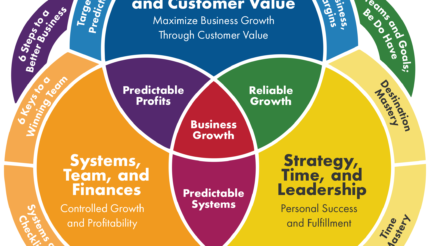Nobody is Born a Great Manager: Why Education and Self-Development are Essential
Nobody is born a great manager: Why education and self-development are essential. In many areas of life, it’s easy to romanticise the idea of “natural talent.” We often hear stories about individuals who seem to effortlessly excel, be it in athletics, the arts, or leadership. However, when it comes to management, the notion that someone is born a great manager is not only misleading but also harmful. Leadership in any organisation or team is a complex and nuanced role that requires a blend of emotional intelligence, technical skills, and interpersonal understanding. These are not traits you’re born with; they’re cultivated over time.
To become a great manager, you must invest in education, self-development, and consistent practice. This blog explores the reasons why nobody is born a great manager, and how education and personal development play critical roles in shaping effective leaders.
The Myth of the “Natural Leader”
Many people believe that leadership and management skills are something inherent—that some people are simply born to lead and born a great manager. The reality, however, is much different. While certain personality traits may lend themselves to leadership, such as extroversion or charisma, these alone do not make someone a great manager.
Management involves more than just leading a team. It requires decision-making, conflict resolution, strategic thinking, and the ability to inspire and motivate others. These skills are learned and honed over time through experience, training, and self-reflection.
One key reason the myth of the natural leader persists is that good management skills can look seamless. A skilled manager makes complex tasks appear easy, and their interpersonal interactions seem natural. But, just like any other discipline, the ease is a result of years of practice, learning from mistakes, and continuous improvement.
The Role of Education in Management
As no one is born a great manager, formal education plays a vital role in shaping effective managers. Courses in business management, leadership, communication, and organisational behaviour provide the theoretical foundation on which practical skills are built. Education offers managers a structured understanding of how businesses operate, how teams work together, and how to address challenges effectively.
For instance, understanding organisational psychology is crucial in managing diverse teams. Learning about motivational theories helps managers to inspire their teams. Financial literacy enables managers to make informed decisions that impact the organisation’s bottom line.
Management education also provides a framework for decision-making. Whether through formal MBA programs or targeted leadership courses, managers learn various management models, problem-solving techniques, and strategies for decision-making under pressure. Without this education, many managers would rely solely on intuition—a method that might work in some cases but can also lead to costly mistakes.
Moreover, education helps managers stay up-to-date with industry trends and evolving business practices. The world of business is constantly changing, and effective managers need to adapt quickly. Whether it’s adopting new technologies, understanding shifting market dynamics, or embracing new leadership styles, formal education gives managers the tools to keep pace with a rapidly evolving environment.
Why Self-Development is Essential
While education is a critical component of effective management, self-development is equally important. Self-development refers to the process of improving one’s skills, self-awareness, and emotional intelligence through self-reflection, experience, and personal learning initiatives.
Emotional Intelligence
One of the key traits that separate good managers from great ones is emotional intelligence. Unlike technical skills, which can be taught in a classroom, emotional intelligence is largely developed through self-awareness, experience and not by being born a great manager. Emotional intelligence allows managers to understand their own emotions, as well as the emotions of their team members, and respond appropriately.
High emotional intelligence enables managers to navigate difficult conversations, manage team dynamics, and maintain morale even in challenging situations. It helps them recognise when a team member is feeling overwhelmed or frustrated and step in to offer support. These skills don’t come naturally; they are honed through years of self-reflection, learning from past experiences, and consciously working to improve emotional awareness.
Learning from Mistakes
Experience is a great teacher, but only if individuals are willing to learn from their mistakes. Great managers don’t become great by avoiding errors; they become great by reflecting on their missteps and using them as opportunities for growth. This level of self-awareness is critical for personal development.
Many people avoid self-reflection because it can be uncomfortable. It’s hard to admit when we’ve made a mistake or handled a situation poorly. However, for managers, this type of self-reflection is essential for growth. A manager who never reflects on their actions is likely to repeat the same mistakes, alienating team members and causing inefficiencies in their leadership. On the other hand, managers who regularly reflect on their actions can identify areas for improvement and work to become more effective leaders.
Lifelong Learning
Great managers understand that learning doesn’t stop with a degree or a certification. They are lifelong learners who continually seek out opportunities for personal and professional growth. This might mean reading books on leadership, attending workshops, seeking mentorship, or even enrolling in additional courses to enhance their skills.
The most effective managers are those who remain curious and open to new ideas. In an ever-changing business landscape, those who rest on their laurels will quickly become irrelevant. Lifelong learning ensures that managers remain adaptable, innovative, and capable of leading their teams through new challenges.
Building Resilience
Resilience is another key characteristic of great managers, and like emotional intelligence, it is developed through self-awareness and experience. The ability to remain calm under pressure, to recover from setbacks, and to keep pushing forward despite obstacles is essential for effective management.
Resilience is not an innate trait—it’s something that is cultivated over time. Great managers build resilience by confronting challenges head-on, learning from their failures, and continuing to grow in the face of adversity. This self-development process allows them to lead their teams with confidence, even during difficult times.
The Interplay Between Education and Self-Development
Education and self-development are not mutually exclusive; they complement each other. Formal education provides the foundational knowledge and skills that managers need, while self-development helps managers refine those skills and apply them in real-world scenarios.
For instance, a manager might learn about conflict resolution techniques in a leadership course, but it’s through self-reflection and experience that they will learn how to apply those techniques effectively in their unique team dynamics. Similarly, a course on strategic decision-making might provide valuable insights, but it’s through personal experience and self-awareness that a manager will develop the confidence to make tough decisions in high-pressure situations.
Great managers understand that both education and self-development are ongoing processes. They are never “finished” learning or growing; they are constantly seeking out new knowledge and opportunities for self-improvement.
Why Investing in Education and Self-Development is Critical for Organisations
Organisations that prioritise management development—through both education and self-development opportunities—are more likely to succeed in the long run. Managers who are equipped with both formal knowledge and the emotional intelligence that comes from self-reflection are better able to lead their teams, solve problems, and drive innovation.
Moreover, when organisations invest in the development of their managers, they create a culture of learning and growth. This culture not only benefits managers but also trickles down to the rest of the organisation. Teams led by effective managers are more engaged, productive, and motivated. This, in turn, leads to better organisational performance and a more positive workplace culture.
Organisations that fail to invest in management development, on the other hand, are likely to experience higher turnover rates, lower employee engagement, and a lack of innovation. Poor management is one of the top reasons employees leave their jobs, so investing in the growth and development of managers is critical to retaining top talent.
Conclusion
Nobody is born a great manager. The skills required to lead a team effectively—emotional intelligence, decision-making, conflict resolution, and strategic thinking—are all learned through education, self-development, and experience. While certain personality traits may give some individuals a head start, becoming a great manager requires a commitment to continuous learning and personal growth.
Education provides the theoretical foundation and practical tools that managers need to succeed, while self-development helps them refine those skills and apply them effectively in real-world situations. Great managers understand the importance of both, and they invest time and effort into their own growth.
For organisations, investing in the development of their managers is not just a nice-to-have—it’s a critical component of long-term success. By fostering a culture of learning and growth, organisations can ensure that their managers are equipped to lead effectively, drive innovation, and inspire their teams to perform at their best.
Become a great manager ContactUs





